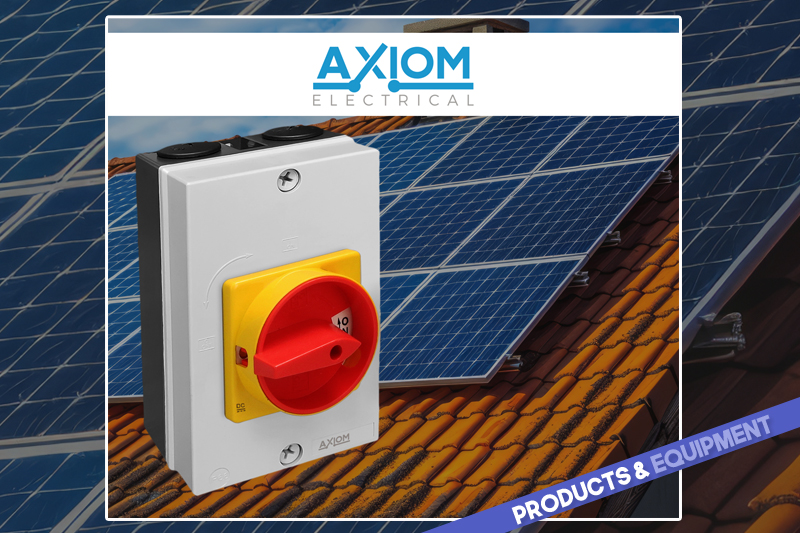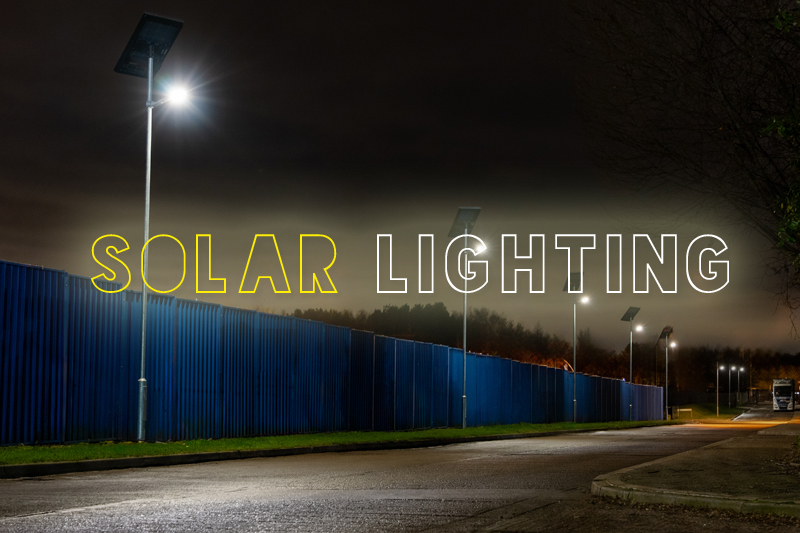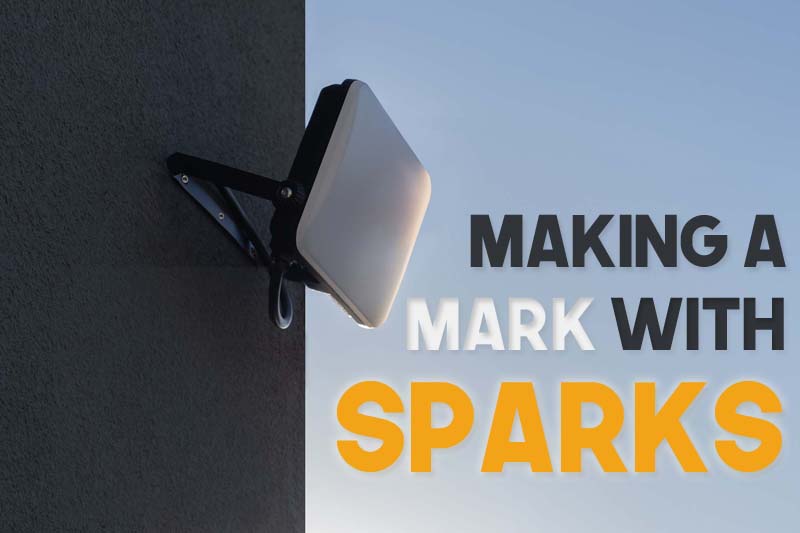In this month’s Face to Face we hear from Kathryn Adams, Commercial Director at Prolectric, about solar based products and future direction of the industry.
- Can you tell us a bit about Prolectric and the products and services the company offers?
As the first to specialise in off-grid, renewable lighting and power, we’ve made it our mission to build the world’s cleanest, most advanced, sustainable products. We’ve been powering the UK’s off-grid energy needs with smart, clean, renewable technology for almost a decade.
We introduced the first all in one solar street lighting to the UK in 2011, as a like-for-like alternative to traditional mains powered lights. With no need for trenching or cabling and with no ongoing costs, they are a perfect replacement for streetlights that have come to the end of their life or for new developments. The lights have been widely adopted by house builders, facilities managers for large commercial estates and local councils, for use in car parks, large campus, residential housing developments, parks and pedestrian walkways.
Our solar hybrid generators and solar lighting towers are like-for-like alternatives to diesel. They have been engineered using the latest autonomous software to ensure they work perfectly in the UK, whatever the weather and season.
Engineered in Britain to the highest standards, our products provide unparalleled performance, which reduces or eliminates carbon, fuel and noise – all the while saving costs and meeting carbon saving goals. Since launching our first solar lighting tower in 2016, we have saved customers 27million kgs of CO2 and reduced diesel usage by more than 10.2million litres, which represents a customer saving of more than £10million.
We lead the way in this sector – not least because we pioneered it – but because we’re the only ones to have mastered the art of engineering the only solar, battery and hybrid systems in the UK to truly work autonomously, all-year round.
- What advantages does solar/hybrid powered equipment boast over traditional systems?
When it comes to permanent lighting, solar streetlights and bollards are simple, quick and economical to install. With no labour required to dig trenches or install trunking for cables, labour costs and carbon footprints are significantly reduced. Installation time is minimal compared to conventional mains power alternatives.
As an unlimited resource, combined with its versatility, minimal noise and low maintenance, solar and solar hybrid powered equipment offer a highly efficient alternative to diesel, without making any compromises to onsite power needs. The self-generating strengths and properties of solar mean it can be used safely and effectively anywhere, and in all weather conditions.
Modern solar panels are designed with self-cleaning technology. Battery maintenance is also minimal, with many solar systems featuring smart battery management systems that require little to no manual intervention. Routine checks and occasional cleaning are usually sufficient to keep a solar system running smoothly year-round.
Temporary power provides a perfect solution for urban areas, as it operates silently and has zero risk of spillages. Including the initial investment, our customer is cost neutral after only 2 and half years on average – and makes an average total saving of £18k year on year after that.
- Do solar based products require optimal weather conditions to operate effectively?
Short answer is no, absolutely not. One of the most common myths is that solar power only works in the summer when the sun is shining and becomes inefficient during winter. Contrary to this belief, solar panels are designed to work effectively even in colder climates – and often are more efficient at converting sunlight into electricity when operating at cooler temperatures.
While shorter daylight hours might slightly affect the overall energy generation, advancements in solar technology, such as improved panel efficiency and energy storage systems, have minimised this impact. Prolectric’s solar technology has been engineered to work in the harshest of UK winters, where cloudy days make up 43% of the year. They’ve been tested and proven to work in Scotland.
Even on overcast days solar panels can still capture diffuse sunlight by efficiently converting it into usable energy, allowing customers to effectively harness solar power in low-light conditions. To date, we have provided over 8,000 solar streetlights across the UK, brightening up car parks, walkways and streets, round the clock, 365 days a year.
Solar lighting has come a long way from its early days and today offers a reliable and eco-friendly solution, without compromising on brightness, on a wide range of applications from commercial, industrial and infrastructure to social housing developments. We have spent years creating smart solar tower lights that can self-regulate to ensure they work throughout the night. Using GPS, we are able to capture 10 years of solar radiance, in one location, including the specific dawn and dusk times. This intelligence is evaluated alongside the current state of battery reserves, to provide autonomous lighting – the built-in capability to manage optimum levels of luminosity throughout the night as needed.
- How do you see the industry evolving over the next few years?
The drive for sustainable products will only continue to increase over the next few years as we head closer to our 2030 and 2050 decarbonisation targets. With increased pressure on the UK grid, permanent solar lighting will become a more desirable method to alleviate some of the demand. This, combined with the continued rising cost of fossil fuel energy, means we are very confident that off-grid solar lighting will result in much more widespread use.
We also predict a critical sea change when it comes to diesel reduction. There are currently an estimated 300,000 items of Non-Road Mobile Machinery (NRMM) used by the UK construction sector, largely powered by diesel, and therefore generating significant carbon emissions. Work is underway across the UK construction sector to eliminate diesel from construction sites with a number of large infrastructure projects and main contractors setting commitments to reduce and eliminate the use of diesel from construction. However, this is an area which requires a huge amount of mindset and behaviour change.
- What are the greatest challenges in convincing industry to switch to battery and solar based solutions?
There have been slower adoption rates across industry for many factors, but a lot of this is concerned with a huge lack of accurate information. We are making it our mission to right this. Challenging the norm is never easy. There are many misconceptions when it comes to solar and alternative power use, so we have to work hard at myth busting.
Cost is often highlighted as a barrier to change, and whilst the initial outlay of the unit is often higher than traditional options, the lifetime costs are significantly cheaper and the dividends are quickly clear to see. On average customers who purchase our Prolight Solar Lighting tower are cost neutral before the end of the 2nd year and save £3,000 a year per unit thereafter, as well as the savings on your ProPower I mentioned previously. Solar works all year round, in all weather conditions, even in the harshest of Scottish winters – we have the data to prove it.
- What will Prolectric be focusing on over the next 12 months?
Continuing to be at the forefront of the industry, driving positive change, we see it as our duty to educate the market. We will continue to collaborate with organisations who want to make a positive change to their business and the environment, working closely with wholesalers, national house builders, across the public sector and on largescale infrastructure projects. Helping businesses to move away from using polluting fossil fuels to achieve their carbon-saving goals and sustainability commitments, as well as saving money, remains our primary goal.
To find out more about Prolectric, click here





